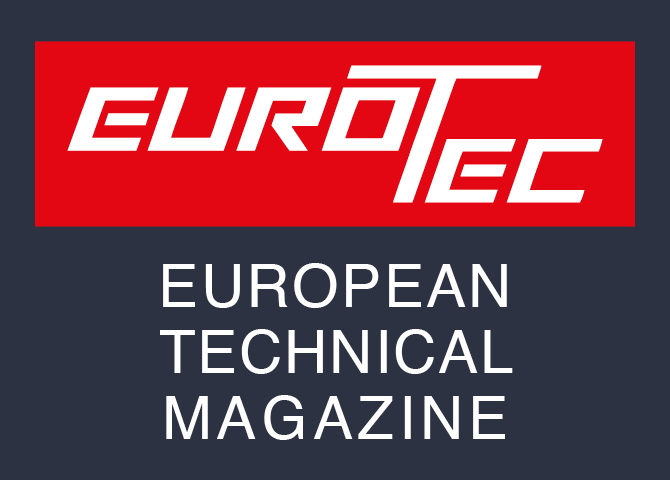EMO General Commissioner Carl Martin Welcker and AI expert Prof. Christian Brecher from RWTH Aachen spoke to the international media about industry perspectives and the highlights of EMO 2025. Welcker promised plenty of inspirational content for companies, as well as a strong boost for manufacturing industries and the future of metalworking. He also took the opportunity to call on those in politics to create better conditions for the manufacturing sector and to support rather than undermine industrial manufacture as a way in which to considerably increase the readiness to invest and create more jobs.
Expectations are high for EMO Hannover 2025, explained the EMO General Commissioner, especially with the tendency of current economic and political conditions to curb business ambitions. The global political climate has created many uncertainties, with the customs policies of the US now another factor added to the mix that is keeping companies on their toes. “However,” continued Welcker, “we can’t hide the fact that the uncertainties surrounding tariffs – recently with additional duties on metal parts in our machinery – have now gone beyond what is tolerable.”
In these difficult times, he explained, the EMO is more than simply a window to the world of technical innovation. It is demonstrating ways in which the industry can be more proactive, can build bridges, find solutions, and invest in future technologies. “Companies now need to make every effort to improve their global presence and competitiveness in order to be optimally prepared for when the economy starts to pick up,” the EMO General Commissioner emphatically declared.
EMO is the “place to be” for the international metalworking community
An important task of EMO is to bring together and provide guidance to those involved in the industry. “We are providing the opportunity to exchange industry viewpoints and ideas with experts and serve as a tour of discovery for fresh ideas, changing perspectives and promising areas of business.” Such as with the EMO Economic Forum, held on Tuesday, September 23 from 2 to 4 pm in the Congress Centre, suggested Welcker. Representatives of the most important user industries, automotive, mechanical engineering, aviation and medical technology, come here to discuss economic and technological challenges, to explain their strategies and present best-practice examples.
The EMO event has also now appointed a partner country for the first time. Under the title “Alliance Country Canada@EMO2025”, Canadian manufactur- ers will be showcasing their products and services in Hall 12. A clear demonstration of solidarity with partners, explains Welcker, who will also be interested in a rule-based world trade.
Automation and artificial intelligence are key topics
EMO Hannover 2025 is highlighting the key topics amidst a comprehensive process of transformation, explains Welcker. Competition is fiercer, while imperialism and isolation are destroying value chains and the international division of labor, he says to describe the current situation. Companies are facing the challenges of rising costs and skills shortages. At the same time, the demand for sustainable products is growing. VDW, an organizer of EMO Hannover 2025, views the mega trends of automation, sustainability, digitalization and AI (Artificial Intelligence), as the main focus topics of the event. However, he explains, the current hype surrounding AI shouldn’t blind anyone to the fact that for most visitors there are other, primarily simpler, solutions in the spotlight.
According to the EMO General Commissioner, it is certainly those automation solutions that improve efficiency and quality in the production process that are the real draw. Viewed as the main drivers of innovation, exhibitors are providing a whole host of solutions that range from simple plate changers and handling systems to the use of robots and autonomous factories.
Further development of AI expertise required
One topic covered at EMO Hannover 2025 has meanwhile taken on special significance: artificial intelligence. The significance AI has now for production technology and could have in the future was explored by Prof. Christian Brecher, Chair of Machine Tools at the Laboratory for Machine Tools and Production Engineering (WZL) at RWTH Aachen and representative of the initiative ProKI. Brecher sees generative AI and chat bots such as ChatGPT simply as a visible breakthrough for the general public. The focus of investors and those in research, however, will be on industry-related applications, he concludes. He expects agent systems to have a major impact, which will be capable of executing production tasks autonomously, making decisions and optimizing production processes. Europe, in particular, is providing an excellent basis for the development of AI and has the chance to become the world market leader for industrial AI. “Here in Europe, the depth and breadth of industrial data is incomparable to any other region,” says the scientist. Strong AI research is laying important foundations for the future.
Brecher sees motivation coming from developments in Germany, such as the high-tech agenda of the German Federal Ministry of Education and Research, which has declared AI and AI robotics to be key issues. The transfer into industry and development of talent should be strengthened accordingly. Big investments in AI gigafactories, for example in Jülich, have established an infrastructural basis. Brecher called on those in the industry to build networks, open data rooms and participate in eco-systems. Data is a product with which money can be made, explained the AI expert. He called for greater risks to be taken with investments, as well as the expansion of AI expertise through talent and AI projects. To those in politics, Brecher called for greater investment in research, as well as the expansion and greater affordability of computing power that has been “Made in Europe”. Less bureaucracy could provide the motivation to open industrial data rooms and make greater investments in AI. Europe has everything it needs to make this happen, he continued. It just now needs the courage to tackle large-scale AI initiatives. And what better place to get started than at EMO Hannover 2025. Here, the AI + Digitalization Area and the AI Hub@EMO2025 are providing the perfect starting point. In Hall 6, application scenarios and prototype solutions for AI in metalworking will be demonstrated.
Varied program of accompanying events provides broad look at current production situation
The EMO General Commissioner promised gripping topics on the future of production technology on the EMO Innovation Stage, hosting a program of events every day in Hall 12. The EMO P.O.P. Talk will be chatting, for example, with well-known publicist and podcaster Sascha Lob on Friday about AI in the manufacturing industry – Driving growth or existential threat. In addition to the technical topics, the key challenges faced by Germany as an industrial nation will also be explored, for example in discussion with manager and publisher Julia Jäkel as co-initiator of the “Initiative for a Fully Functional State” on Wednesday, September 24, followed by input from EMO General Commis- sioner Welcker.
A record number of students of school age have registered for the Special Education Show, reports Welcker, which has been organized by the Nachwuchsstiftung Maschinenbau foundation together with 16 partners and will take place in Hall 7. The aim is to introduce young talent to companies, technologies and educational opportunities. Also fully booked is the EMO Startup Area in Hall 6, where industry newcomers have the opportunity to showcase their innovative ideas. The highlight here will be the EMO Startup Night with a speed dating event on September 23.
The various joint stands also have their finger on the pulse, with global initiative umati, for example, focusing on the advantages of a standardized networking of machinery. The Additive Manufacturing Area is aimed at visitors interested in 3D printing. The key theme of sustainability will be explored at the Sustainability Area joint stand, amongst others, in Hall 14. The focus here, for example, will be on practical examples that are simple to implement across the entire value chain of sustainable production.











